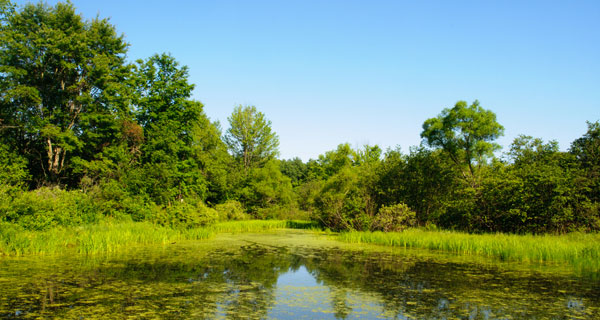Advertisement
It’s World Wetlands Day
February 2 may be Groundhog Day each year, but it’s also World Wetlands Day today! Put simply, wetlands are where water meets the land, such as swamps, marshes, and bogs. They exist in every country and in every climate in the world—even in the Arctic! And Canada is home to a whopping 25 percent of … Continued

February 2 may be Groundhog Day each year, but it’s also World Wetlands Day today!
Put simply, wetlands are where water meets the land, such as swamps, marshes, and bogs. They exist in every country and in every climate in the world—even in the Arctic! And Canada is home to a whopping 25 percent of them.
Many people don’t know just how vital the wetlands are to the environment. They’re a unique ecosystem that supports many species of plants and animals—so much so that they’re often called the “nurseries of life.” Common North American wetlands animals include frogs, ducks and other birds, snakes, turtles, fish, and even crocodiles in some parts.
Unfortunately, the world’s wetlands are in danger, as many are disappearing in favour of construction projects. These fragile ecosystems are also in danger due to climate change.
This year’s theme is “Wetlands and Tourism,” and for good reason—in 2010 alone, nearly 940 million tourists visited wetlands, not even counting recreational day trips! Although uncontrolled tourism can leave devastating effects on wildlife, regulated, sustainable tourism can have positive effects, such as teaching people about the environment.
Show some love for the wetlands:
- Get out and explore the wetlands! They’re a great place to bird-watch, canoe, or just sit and enjoy nature. Even in the winter, you can spot signs of life. But remember—don’t take anything from the natural environment, and don’t leave anything behind.
- Get kids involved—it’s the perfect opportunity to introduce them to plants, animals, and other parts of nature. You can make a project by getting them to list the types of creatures they see, and name the plants they find.
- Check to see if your community has any events today or over the weekends in support of World Wetlands Day.
- Volunteer with a local environmental group to support these precious ecosystems.





